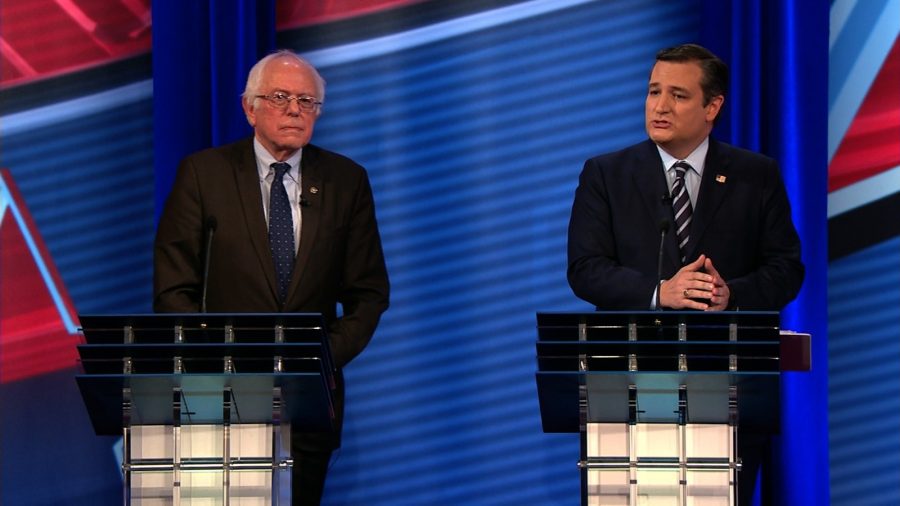Addressing The Affordable Care Act
February 16, 2017
On Tuesday evening, Texas Senator Ted Cruz and Senator Bernie Sanders of Vermont gathered to discuss the future of the Affordable Care Act, more commonly known as Obamacare. The two senators, who were also primary contenders in the 2016 presidential election, had collaborated sentiments from both sides of the aisle as they debated an alternative health care plan for the American populace in light of its abolishment under the Trump administration. Moderated by CNN, the discussion also featured an interactive Q&A session with audience members, as the general populace remains eager for clarity on the substantial issue.
Through the course of the discussion, Senator Sanders had asserted a firm stance regarding his liberal sentiments, calling for improvements in a fundamentally flawed system in which the Democratic and Republican party have divided even further post President Trump’s inauguration into the Oval Office. It is quite notable that despite a strong negation from Senator Cruz, Sanders had remained on the offense and clearly addressed the ethical proposition of having every American entitled to healthcare, a belief he has remained a strong proponent for.
In a heated exchange with Cruz, Sanders had justified that Obamacare may only be replaced with a plan that supports the necessity of a single payer system, parlaying the conservative notion of universal access to health care, in which the affords to achieve that access is not defined. He furthers by outlining both the impacts and the flaws of Obamacare, with the benefits of governmental oversight and universal supplement of health care. During a questioning period with an audience member, he stated that despite similar flaws in the healthcare system of the United Kingdom, which requires patients to wait for needed care, the US system is rationed by income, where the wealthiest of the lot receives the best care.
On the other hand, Senator Cruz had represented the conservative perspective of the debate, asserting pragmatic and intelligent arguments that projected his consummate persuasive skills and ardor to the American people. A powerful orator who gained prominence arguing for the Supreme Court and a former captain at Princeton’s venerable literary and debate society, his emotional zeal conveyed the reactionary efforts of the Republican party in Congress. In response to the Vermont Senator, Mr. Cruz had agreed on common sense reform that consists of greater autonomy and choice to the people, mandating lesser powers to insurance companies that dictate the time and efforts of healthcare patients with paperwork.
“The US should not envy other health care systems, especially Canada and the United Kingdom,” said Cruz, taking the example of a Canadian governor who came to the United States for heart surgery. He argued that the government has burdened the wallets of the common taxpayer and reiterated his choice argument where socialized medicine becomes rationed medicine. Rightfully, the argument boils down to legislation that doesn’t burden one with the responsibility of sponsoring others and increases affordability rates.
However, this isn’t the first time that congressional Republicans have vehemently opposed the federal statute enacted by former President Obama. In September of 2013, the then freshman Senator Cruz took to congressional floors in an attempt to defund the health care law. For an astonishing total of 21 hours and 19 minutes, his filibuster (a prolonged speech, usually done before a vote, that legally stops Senate activity; a final act of persuasion) stands as one of the longest in Senate history, falling three hours short of Senator Strom Thurmond of South Carolina in 1957. While his address had given him the undivided attention of his colleagues, he was unsuccessful in his attempt to repeal the insurance act at the time.
When examined, the respectful exchange between both Senator Cruz and Senator Sanders, while engaging, did not arrive at a firm conclusion regarding the proper course of action in the status quo. However, it defined the true premise of a perplexing argument that can only be resolved through bilateral efforts, a clear vision, and reform in areas that still require discussion by the American leadership. The only factor that remains an adjudicator to the future of Obamacare is time, which will serve as a testament to the decisions made by the new administration.






















































